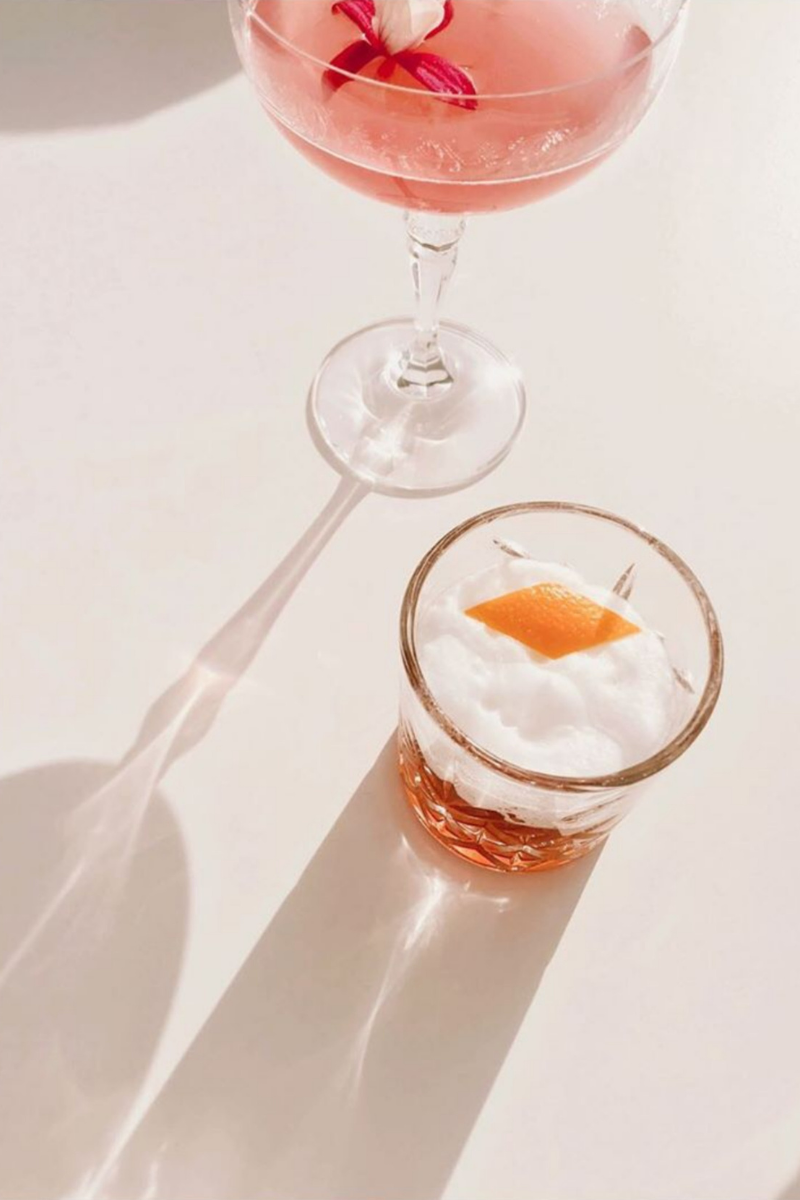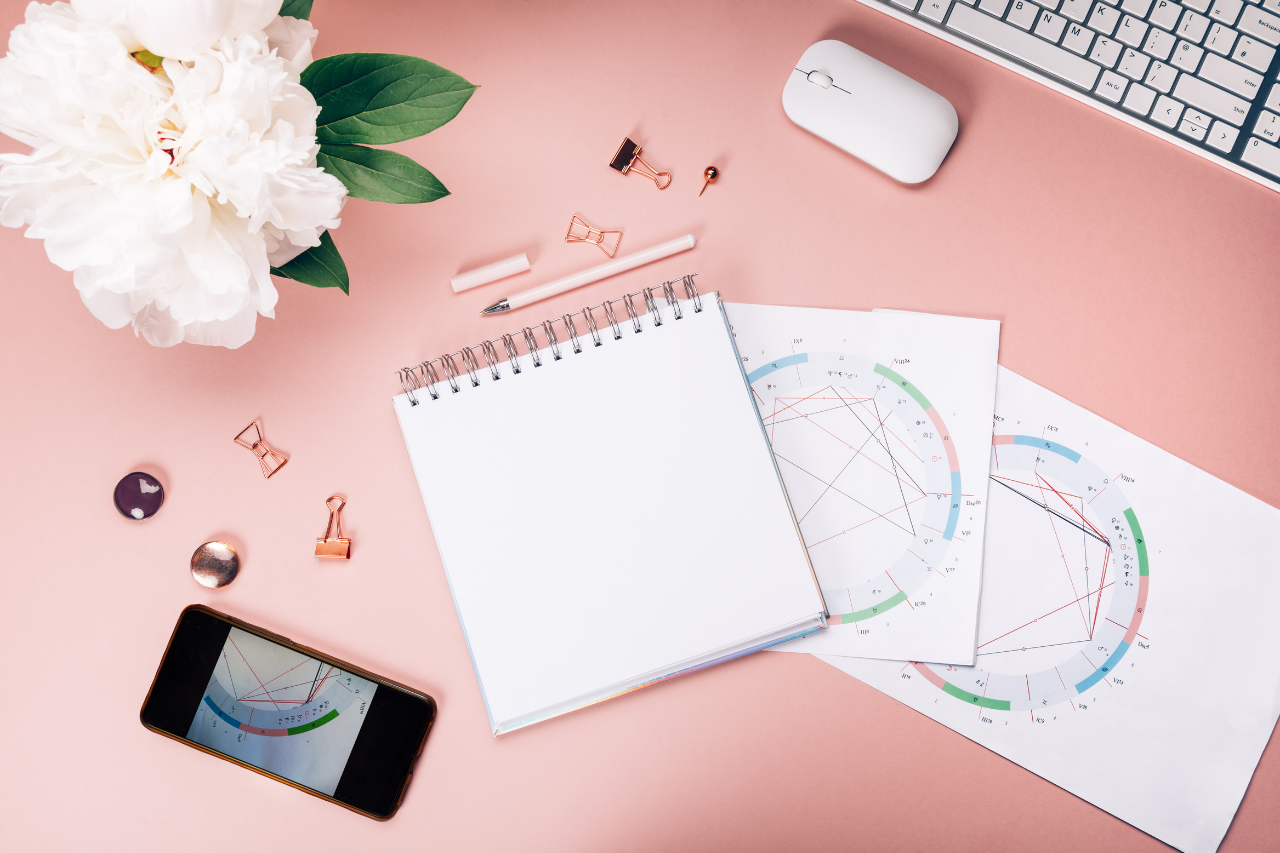
I am a firm believer in balance. I exercise five times a week, regularly eat pasta, indulge in dessert, and snack on salad. And I can never, ever, pass up a good hot and dirty martini. What can I say? Everything in moderation. Which is why I’ve been overjoyed witnessing the world finally embrace healthy ways to drink alcohol through the sober curious movement—AKA drinking mindfully.
When you drink mindfully, you naturally make smarter, healthier choices. However, even still, nothing in life is a one-size-fits-all. Which is why I tapped sober curious lifestyle coach, certified nutritionist, and online fitness coach, Kathryn Sauser, for her expertise on the healthiest ways to imbibe.
That being said, if you’re looking to transform your relationship with alcohol, you’ve come to the right place. While this is absolutely no substitution for professional or medical advice regarding sobriety, Sauser’s smart ways to consume can help the sober curious develop a healthier relationship with alcohol. Keep scrolling to learn the 5 healthy ways to drink alcohol, according to an expert.
5 Healthy Ways To Drink Alcohol, According to an Expert:
1. Drink mindfully
Drinking mindfully is what the sober curious movement is all about: Having the self-awareness to know why you’re drinking. A lot of drinking patterns are formed through habits. So if you’re having a tough day and are automatically reaching for that glass of wine, pause for a minute, and ask yourself what you’re doing. For some, this glass of wine may simply take the edge off; but for others, it may be a way to avoid dealing with deeper, more difficult emotions.
To start drinking mindfully, Sauser suggests taking a step back and examining your drinking patterns. Do you consume when you’re upset or stressed? Are you going through emotional turmoil and trying to suppress and avoid dealing with those emotions? What happens when you drink? Asking yourself these kinds of questions may be difficult, but it’s crucial to developing a healthy relationship with alcohol.
2. Develop healthy habits and coping mechanisms
According to Sauser, more and more people are realizing that alcohol isn’t always the answer when it comes to dealing with difficult emotions or situations. And having healthy habits and coping mechanisms to turn to when things get tough will help you avoid trying to numb the pain with alcohol. Exercising regularly, having good sleep hygiene, or practicing yoga or Tai Chi can also help with this.
That said, if you are using alcohol as a coping mechanism, there’s a good chance unwanted, uncomfortable emotions will come up when you’re not drinking. “When this happens, try to be mindful of your thoughts and examine them without judgment,” Sauser told me. “Try writing them down and come back to the present moment. If it gets overwhelming, take some time for yourself and reach out to a friend.”

3. Establish a strong support system
According to Sauser, friendships are one of the biggest reasons people have trouble embracing sober curiosity. “They worry their relationships with their friends will suffer,” she explained to me. “But just because you’re not drinking doesn’t mean you have to give up your friendships,” she clarified. Instead, Sauser recommends finding alternative activities and ways to connect, like going on coffee dates or walks. Having alcohol-free activities you can lean on can also be helpful.
At the end of the day, your inner circle should want the best for you, which is why having a strong support system is key. If you don’t have that with the people in your life now, Sauser encourages finding a support group or joining an online forum. Surrounding yourself with people who want to see you succeed is going to help you be more mindful and make smarter choices when drinking.
4. Figure out what works for you
“People often think drinking is an all-or nothing kind of thing, but it’s not that black and white. There’s a lot of gray areas in between,” Sauser said. Some people might feel their best completely sober, while others might feel good indulging occasionally or having a glass of red wine every night.
Whatever the case may be, the best thing you can do is figure out what works best for you. This is where taking a step back and truly examining your relationship with alcohol comes in—if you don’t take the time to look at your behaviors and patterns, you’ll never know if you’re living to your fullest potential. “It’s about taking the time to experiment and find what works for you,” Sauser explained. “And in doing so, you may find that you feel better reducing or removing alcohol from your life.”
5. Trust yourself and learn from your mistakes
You know yourself better than anyone else, which is why Sauser encourages everyone to trust themselves and stay confident in their decisions—regardless of what anyone else says. She also believes that it’s important to learn from your mistakes. “We all make mistakes and gain clarity and feedback through the slips of our journey,” she said to me. “There is no need to beat yourself up. Instead, take some time for yourself, reflect, and learn from any setbacks.”
For example: If your hangover ruins your ability to perform at work one day, try to avoid making that same mistake again; this might mean not drinking at all or drinking less. Likewise, if you’re trying to avoid drinking but slip up one night, don’t throw in the towel. Instead, have compassion for yourself, and try to do better next time.
DISCLAIMER:
The information in this article is intended for informational purposes only and is not meant to diagnose, treat, or cure anyone struggling with alcoholism, alcohol abuse, or alcohol addiction.


